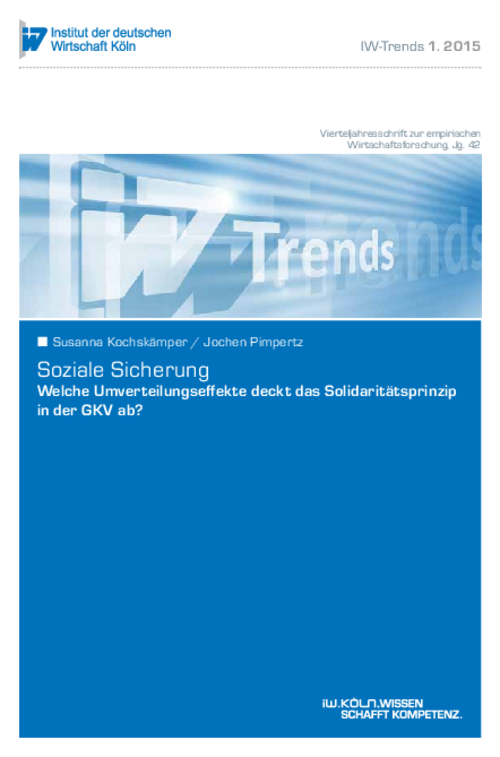Demographic transformation is taking to absurd lengths the risk equalisation between young and old incorporated into Germany’s statutory health insurance system. Despite increasing average expenditure on benefits, the solidarity principle is being upheld for a cross-section of the insured in any given period. In the long term, however, each succeeding cohort is having to bear a heavier burden. A similar situation applies to the risk equalisation between the productive and the less productive insured. To ensure that inter- and intragenerational solidarity is maintained as well, it is essential that the pay-as-you-go system is combined with an appropriate form of capital funding.

What Redistribution Effects are Covered by the Solidarity Principle in the Statutory Health Insurance System?
IW-Trends


Susanna Kochskämper / Jochen Pimpertz: Welche Umverteilungseffekte deckt das Solidaritätsprinzip in der GKV ab?
IW-Trends

More on the topic

The Political Economy of Pension Reform
As the German population ages, the country’s statutory pension scheme, which is financed on a pay-as-you-go basis, requires higher and higher contributions while the level of pensions is falling.
IW
Expenditures and Revenues in Germany’s Statutory Health Insurance
Almost annually recurring deficits in Germany’s statutory health insurance system have led to a steady rise in the contribution rate, a percentage of earned income.
IW